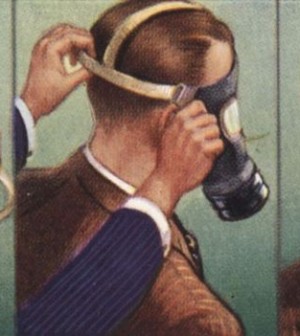- The Best Time of Day to Drink Bone Broth to Maximize Health Benefits
- 8 Ways to Increase Dopamine Naturally
- 7 Best Breads for Maintaining Stable Blood Sugar
- Gelatin vs. Collagen: Which is Best for Skin, Nails, and Joints?
- The Long-Term Effects of Daily Turmeric Supplements on Liver Health
- Could Your Grocery Store Meat Be Causing Recurring UTIs?
- Are You Making This Expensive Thermostat Error This Winter?
- Recognizing the Signs of Hypothyroidism
- 10 Strategies to Overcome Insomnia
- Could Artificial Sweeteners Be Aging the Brain Faster?
Climate Change Will Make Breathing in Summer Harder: Study


Summertime ozone air pollution levels in the United States could rise 70 percent by 2050 due to climate change, according to a new study.
That means that nearly all regions of the continental U.S. will have at least a few days of unhealthy air during the summers. But heavily polluted areas in the East, Midwest and West Coast that already have many days with high ozone levels could be faced with unhealthy air for most of the summer.
“It doesn’t matter where you are in the United States — climate change has the potential to make your air worse,” study lead author Gabriele Pfister, a scientist at the National Center for Atmospheric Research in Boulder, Colo., said in a center news release.
“A warming planet doesn’t just mean rising temperatures, it also means risking more summertime pollution and the health impacts that come with it,” she added.
The ozone that surrounds Earth in the stratosphere is protective, helping to keep the sun’s ultraviolet radiation from causing problems on Earth. Ground-level ozone is different, according to the center’s news release. It forms as a result of chemical reactions from compounds that occur naturally and those produced by man, such as emissions from coal burning.
Ground-level ozone can cause a number of health problems, such as coughing and throat irritation. Ozone can also aggravate the lungs of people who already have trouble breathing, such as those with asthma, bronchitis and emphysema. Pollution from ozone can also damage farm crops and other plants, according to the news release.
The news isn’t all bad, however. The researchers’ computer model also showed that a steep decline in emissions of certain pollutants would result in much lower ozone levels even as temperatures rise due to climate change.
“Our work confirms that reducing emissions of ozone precursors would have an enormous effect on the air we all breathe,” Pfister said.
The study was published online in the Journal of Geophysical Research-Atmospheres.
More information
The U.S. Centers for Disease Control and Prevention outlines the health effects of climate change.
Source: HealthDay
Copyright © 2026 HealthDay. All rights reserved.










